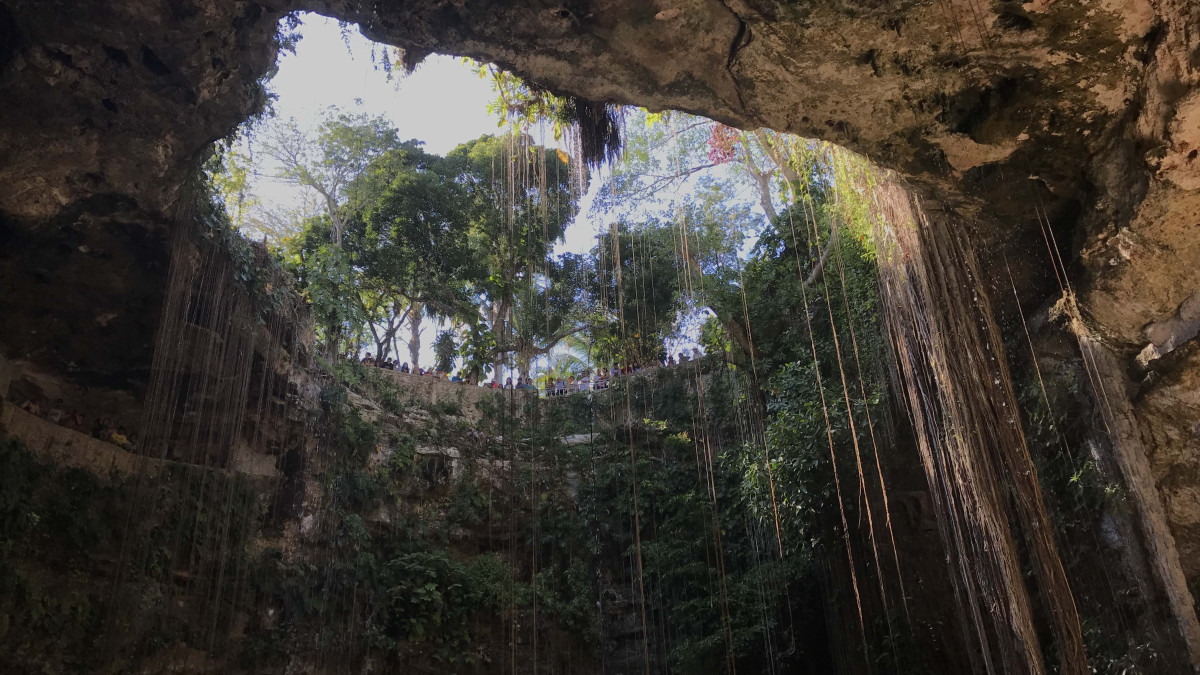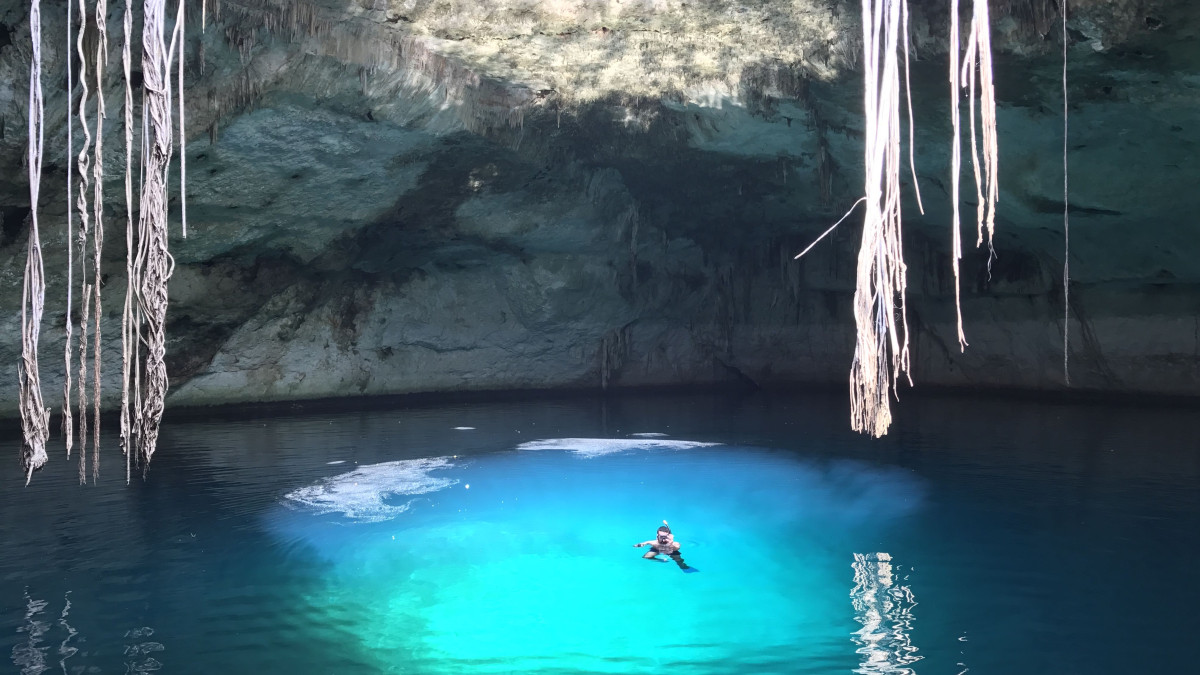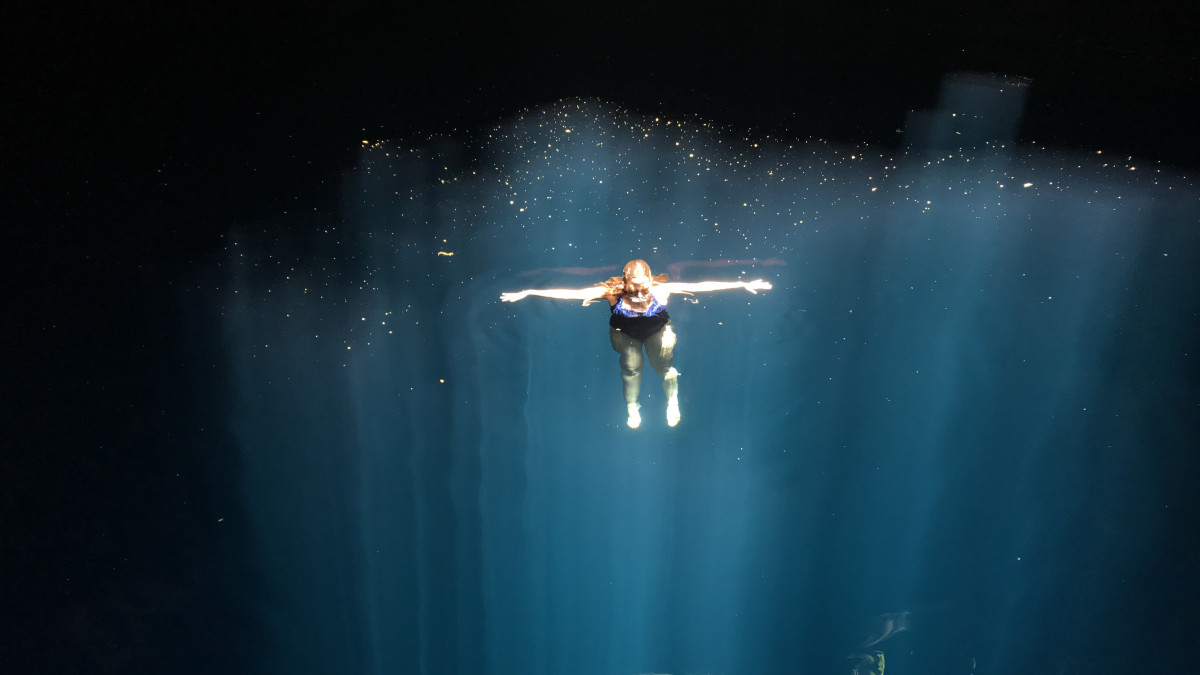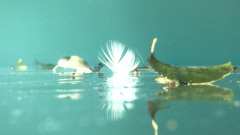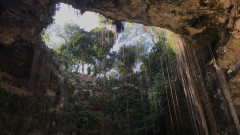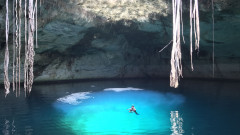Born in Osaka, Japan, in 1987, Oda Kaori is a filmmaker and artist. Through images and sounds, her works explore memories of human beings. She completed the Doctor of Liberal Arts in Filmmaking under the supervision of Béla Tarr in 2016. Her first feature, Aragane (2015) shot in a Bosnian coal mine, had its world premiere at Yamagata International Film Festival and received Special Mention. The film has been screened at festivals such as Doclisboa, Mar del Plata IFF, Sarajevo FF, TIDF, and more. Her second feature, Toward A Common Tenderness (2017), a poetic film research, had its world premiere at DOK Leipzig. Her latest film, Cenote (2019), shot in underwater caves in Yucatan Mexico, premiered in the Bright Future section at IFFR 2020. She received the Inaugural Nagisa Oshima Prize in 2020 and the New Face Award of the Minister of Education Award for Fine Arts in 2021.
Cenote
Cenote
Cenote
In the northern Yucatán Península of Mexico, there is an abundance of 'cenotes' – sources of water that in ancient Mayan civilization were said to connect the real world and the afterlife. The past and present of the people living in and around them intersect, and distant memories echo throughout immersive scenes of light and darkness.
‘...To experience them (cenotes) for myself, I moved from one village to another like I was on a road trip, going down into cenotes that varied in size and shape from ones that looked like just a well a family might use, to those that were connected to the sea. On my way, I asked people living near cenotes about their memories and traditions with regard to them, and their relationship with the Mayans. One person, upon learning of our research, recited something, which was apparently from a play performed for the purpose of sustaining Mayan culture and tradition. My film Cenote was completed through an accumulation of these encounters: a series of opaque, half-asleep and half-awake moments, both in the water and on dry ground.
After people see Cenote they often ask me if I like being underground, because in my previous documentary I went down into a coal mine, and in this one the main locations were underground caves full of water. Perhaps, quite apart from wanting to get a glimpse at unfamiliar worlds, I also feel that by going down into the bowels of the earth I might be able to touch ancient and long forgotten layers of human memory.’ - ODA Kaori



